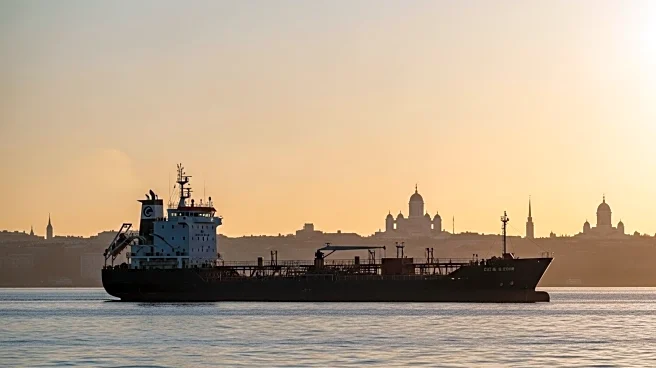What is the story about?
What's Happening?
The Helsinki District Court has dismissed charges against the master and two officers of the tanker Eagle S, who were accused of aggravated vandalism for damaging subsea cables in the Baltic Sea. The court ruled it lacked jurisdiction to apply Finnish criminal law, as the incident occurred within Finland's Exclusive Economic Zone but not within its territorial waters. The damage was caused by the tanker dragging its anchor for nearly 60 miles, affecting five cables, including one crucial for Finland's power supply and four internet cables. The court classified the incident as a navigation mishap under the United Nations Convention on the Law of the Sea, placing legal jurisdiction with the vessel's flag state, the Cook Islands.
Why It's Important?
This ruling highlights jurisdictional challenges in prosecuting maritime incidents, especially those involving international waters and multiple countries' interests. The decision may impact future cases of similar nature, as it underscores the limitations of national laws in addressing cross-border maritime issues. The incident has raised awareness about the vulnerability of undersea cables, which are critical for communication and energy infrastructure. Increased monitoring by Scandinavian and Baltic countries, NATO, and the UK reflects growing concerns over potential sabotage and environmental risks associated with maritime activities.
What's Next?
The dismissal of charges may lead to diplomatic discussions between Finland and the Cook Islands regarding accountability and preventive measures for future incidents. The case could influence international maritime law, prompting revisions to better address jurisdictional gaps. Additionally, European countries may enhance their surveillance and protection of undersea assets, considering the strategic importance of these infrastructures. The incident may also lead to increased scrutiny of vessels operating in sensitive areas, potentially affecting shipping regulations and practices.
Beyond the Headlines
The case raises ethical questions about the responsibility of vessel operators to maintain equipment and prevent environmental damage. It also highlights the geopolitical implications of maritime incidents, as countries may use such events to assert territorial claims or influence international policy. The incident could contribute to broader discussions on maritime security and the need for international cooperation to safeguard critical infrastructure.














